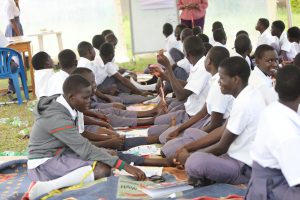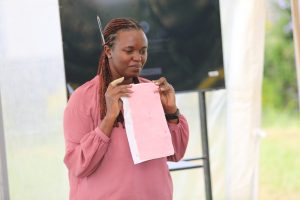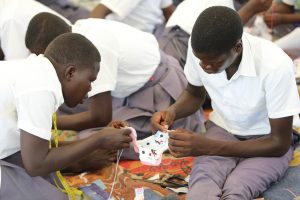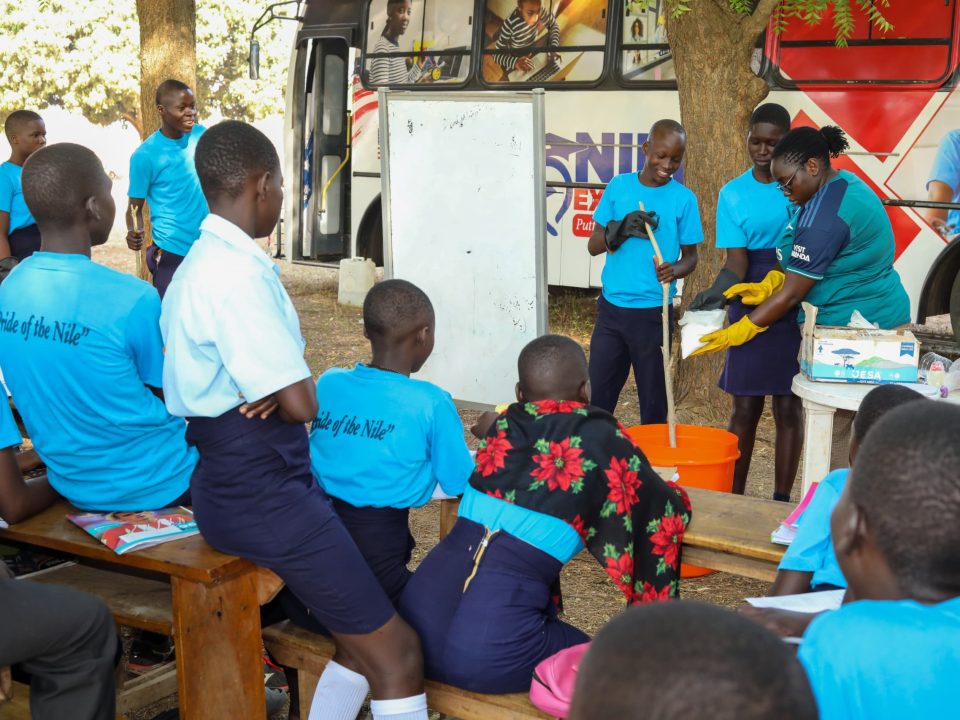
Empowering the Next Generation:Youth Civic Engagement Aboard the Nile Explorer Bus
May 31, 2024
Addressing School Gender-Based Violence in Northern Uganda: A Journey of Change with the Nile Explorer Mobile Classroom
July 9, 2024Menstruation is frequently a taboo subject in Northern Uganda, reserved for women and girls. This silence creates a situation in which young girls, particularly those going through their first period, feel confused, marginalized, and ashamed. Without sufficient support and understanding, many girls are forced to miss school, lose self-confidence, and resort to desperate measures, such as trading sex for sanitary pads, to manage their periods. These unpleasant realities highlight the importance of tackling period poverty and shifting the cultural narrative surrounding menstruation.
Empowering Through Education
The Nile Explorer Bus is a ray of hope in this landscape, working to change how menstrual health is understood and managed in Northern Uganda. Menstrual hygiene management is a critical component of our health curriculum. Through comprehensive sessions, we educate girls on the physical and emotional aspects of menstruation, equipping them with the knowledge and resources they need to manage their periods with dignity.

Students paired up boy-girl ready for menstrual hygiene session in Amuru District
But our mission goes beyond educating girls. We also include boys in these sessions to break the taboo and establish an environment of understanding and support. By educating both boys and girls about menstrual health, we hope to foster a society in which menstruation is understood and supported by all, eliminating the stigma and shame that often surround it.
Fighting Period Poverty
The high cost of menstrual products is a significant barrier for many families in underserved communities such as those in Northern Uganda. Sanitary pads are often too expensive, forcing girls to use unhygienic alternatives or resort to risky behaviours to obtain them. At the Nile Explorer Bus, we address this issue by teaching both boys and girls how to make reusable sanitary towels. This skill not only provides a sustainable and cost-effective solution but also empowers young people to take control of their menstrual health.

Ms Recheal Konso sharing instructions on materials needed to stitch a reusable sanitary towel

Paired up, students stitch the reusable sanitary towels together in Amuru District
Reusable sanitary towels, with proper care, can last up to three years. This long-term solution is far more sustainable than the recurring cost of disposable pads and ensures that girls can manage their periods without financial strain. By promoting the use of reusable sanitary towels, we are taking a significant step towards ending period poverty in Amuru and ensuring that no girl must choose between her health and her education.
Changing Minds and Lives
The impact of the Nile Explorer Bus goes beyond providing menstrual education and practical skills for making reusable pads. We are changing the way communities think about menstruation, fostering an environment where menstrual health is seen as a shared responsibility. By involving boys in these conversations, we are breaking down gender barriers and promoting equality. When boys understand and support menstrual health, they become allies in the fight against period poverty, helping to create a more inclusive and supportive community for everyone.
Ending period poverty in Northern Uganda is an ongoing journey, but the Nile Explorer Bus is committed to making a difference. We continue to educate, empower, and engage both boys and girls in schools in these regions, working towards a future where menstrual health is normalized and supported by all henceforth putting dreams in motion.
Insight:
For the past three years, the U.S. Mission’s Nile Explorer Bus project, implemented by the Open Space Centre, has been actively conducting health sessions across more than 22 districts in Uganda. We have successfully raised awareness and imparted vital knowledge on menstrual hygiene, HIV/AIDS, malaria, and school gender-based violence. In addition to health education, we also focus on promoting STEM education, civic engagement, and essential soft skills, thereby contributing to the holistic development of the youth in these communities.





1 Comment
Thanks for the kind heart. May God bless you dear.